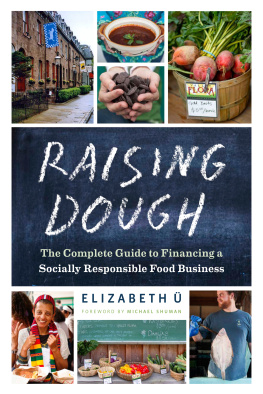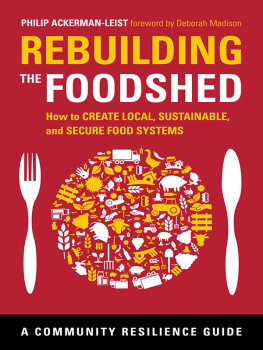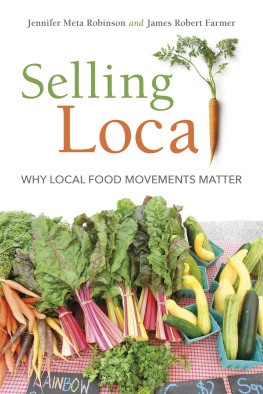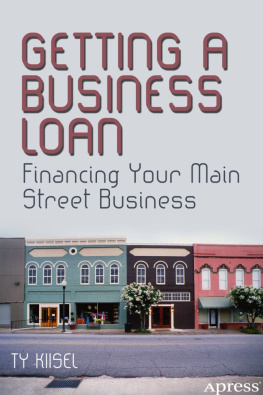Praise for Financing Our Foodshed
Carol Peppe Hewitt zeros in on one of the key vulnerabilitiesand opportunitiesin the local food movement. How do we finance the essential shift away from big-box faux-food and toward regenerative, regional food systems? The stories she tells are revelatory and inspiring. She leaves readers with the confidence that local food makes perfect economic sense, and with lots of practical ideas for how to spark the transition.
Richard Heinberg, Senior Fellow, Post Carbon Institute, author, The End of Growth
I wish Id had Carol Hewitts Financing Our Foodshed when I was writing the Overcoming Obstacles chapter of Life Rules. Her rich trove of stories about locally-financed organic vegetable and poultry farms, farmers markets, restaurants, cheese makers, bakers, repurposers and others engaged in Chatham County, North Carolinas localization, sustainability and post-carbon movements would have made perfect proofs-in-the-pudding accounts for my readers. With the establishment of Slow Money NC, Hewitt and her comrades in farms, shops, small businesses and trucking have removed the major stumbling blocks to sustainable economic relocalization: financing, networking, market share, and distribution. Her books combination of why-to, how-to and already-did is inspiring and very, very promising.
Ellen LaConte, author Life Rules
With this entertaining and often moving account of her work, Carol Peppe Hewett establishes herself the nations premiere practitioner of peer-to-peer lending. She shows how ordinary North Carolinians with a few extra bucks are able to provide critical support for dozens of great local food businesses. She also shines a bright spotlight on what the future of economic development should be. For anyone seriously interested in boosting his or her communitys economy including politicians, policymakers, financiers, businesspeople, and activists this book is essential reading.
Michael H. Shuman, author, Local Dollars, Local Sense: How to Shift Your Money from Wall Street to Main Street and Achieve Real Prosperity.
When the poetic fuses with the practical, the beauty of human potential reveals itself. As the unsustainability of our global economy steadily comes into ever greater focus, Carols heart warming Slow Money stories, and her determination to make them possible, offers a beacon for practical action centered on the idea that the purpose of finance is to serve life, and not the other way around. Financing Our Foodshed is poetry in motion!
John Fullerton, Founder of Capital Institute and former managing director of JPMorgan
Carol Peppe Hewitt has written a lovely book that brings the lofty but often abstract ideals of Slow Money down to human scale. By introducing us to North Carolina farmers, bakers, butchers and vegan soul food mavens, and the citizen-investors that believe in them, she paints an engaging portrait of a community learning how to take care of its own, and offers inspiration for others looking to do the same.
Amy Cortese, author of Locavesting, The Revolution In Local Investing And How To Profit From It
Financing Our Foodshed
Financing Our Foodshed
GROWING LOCAL FOOD
WITH SLOW MONEY
CAROL PEPPE HEWITT
Copyright 2013 by Carol Peppe Hewitt. All rights reserved.
Cover design by Diane McIntosh. All images: iStock
Back cover images: Bett Wilson Foley
First printing February 2013.
Paperback ISBN: 978-0-86571-723-7 eISBN: 978-1-55092-518-0
Inquiries regarding requests to reprint all or part of Financing Our Foodshed should be addressed to New Society Publishers at the address below.
To order directly from the publishers, please call toll-free (North America) 1-800-567-6772, or order online at www.newsociety.com
Any other inquiries can be directed by mail to:
New Society Publishers
P.O. Box 189, Gabriola Island, BC V0R 1X0, Canada
(250) 247-9737
LIBRARY AND ARCHIVES CANADA CATALOGUING IN PUBLICATION
Hewitt, Carol Peppe
Financing our foodshed : growing local food with slow
money / Carol Peppe Hewitt.
Includes index.
ISBN 978-0-86571-723-7
1. Local foods Case studies.2. Sustainable agriculture Finance Case studies.3. Small business Finance Case studies. 4. Loans Case studies.5. Investments Case studies.I. Title.
HD9000.5.H49 2013338.1'9C2013-900258-8
New Society Publishers mission is to publish books that contribute in fundamental ways to building an ecologically sustainable and just society, and to do so with the least possible impact on the environment, in a manner that models this vision. We are committed to doing this not just through education, but through action. The interior pages of our bound books are printed on Forest Stewardship Council-registered acid-free paper that is 100% post-consumer recycled (100% old growth forest-free), processed chlorine free, and printed with vegetable-based, low-VOC inks, with covers produced using FSC-registered stock. New Society also works to reduce its carbon footprint, and purchases carbon offsets based on an annual audit to ensure a carbon neutral footprint. For further information, or to browse our full list of books and purchase securely, visit our website at: www.newsociety.com

To Emma and Meg: May you, and your children and their children, live in a world where enjoying local food is just a no-brainer.
catalyst: catalyst [kat-l-ist] noun
1. a substance that enables a chemical reaction to proceed at a faster rate than otherwise possible
2. an agent that provokes or speeds significant change or action
Contents
In North Carolina, there are now over 60 generous, forward-thinking, remarkable Slow Money lenders and another 30 courageous, passionate and extraordinarily hard-working Slow Money borrowers (small farmers and local food business owners). These are the people who most deserve my thanks. I wrote this book to tell their stories in the hopes that they will take even more pride in the important work they do and with the hope of inspiring others to follow their lead.
My gratitude also goes to Tony Kleese and Mike Ortosky of Earthwise Company in Raleigh, who, in the spring of 2010, invited Woody Tasch, author of Inquiries into the Nature of Slow Money to speak in my hometown of Pittsboro, NC.
I was immediately intrigued by his challenge to fund our local farmers and local food enterprises. Thank you, Woody, for your brilliant ideas and your writing, for your insistence that we all can make a difference, and for your leadership of the burgeoning Slow Money movement.
Thanks also go to my friend Lyle Estill who knew I would love the idea of Slow Money and finagled an invitation for me and our mutual friend, Jordan Puryear, to hear Woody speak that afternoon. Lyle not only made our very first Slow Money loan, he has been a steady source of encouragement and help in running this project.
When we needed a fiscal sponsor, The Abundance Foundation was a perfect fit. Thank you to the Women of Wonder, Tami, Jenny, and Mary, for all you do to support Slow Money NC and manage our meager finances.
Next page







